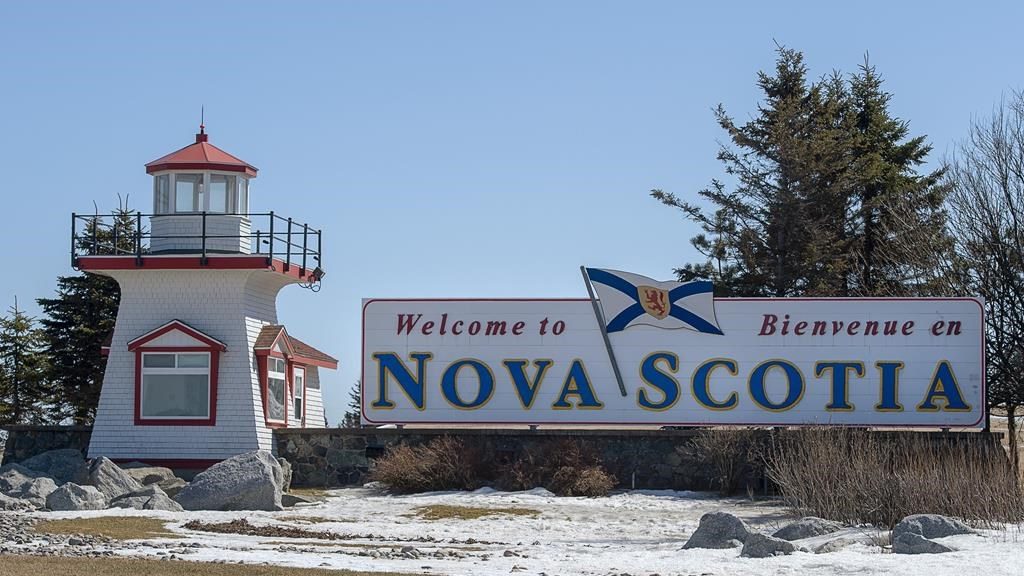The Monday news briefing: An at-a-glance survey of some top stories
Posted May 29, 2017 05:40:45 PM.
Last Updated May 29, 2017 06:40:22 PM.
This article is more than 5 years old.
Highlights from the news file for Monday, May 29
———
POPE OPEN TO RESIDENTIAL SCHOOLS APOLOGY, PM SAYS: Canadians are anxious to reconcile with Indigenous Peoples, Justin Trudeau described telling Pope Francis on Monday as he asked the pontiff to apologize for the role the Catholic Church played in the tragedy of residential schools. The Pope — himself no stranger to the cause of social justice, he noted to Trudeau — seemed open to the idea, the prime minister said as he related the broad strokes of their private conversation at the Vatican. “He reminded me that his entire life has been dedicated to supporting marginalized people in the world,” Trudeau said after he arrived back in Rome. Pope Francis also expressed his enthusiasm for working with the prime minister and the Canadian bishops on finding a way forward on the issue of an apology, as recommended by the Truth and Reconciliation Commission. The commission included the demand for a papal apology — to survivors, their families and communities — as one of the 94 recommendations in its report on the dark 120-year history and tragic legacy of residential schools.
———
SCHEER GETS HERO’S WELCOME FROM TORY CAUCUS: New Conservative leader Andrew Scheer is basking in a hero’s welcome on Parliament Hill. The Saskatchewan member of Parliament was feted by his fellow MPs and leadership rivals alike as he arrived Monday to address the Tory caucus, fresh off a thrilling final-ballot win in the party’s leadership contest on the weekend. He called the role a great honour, but an even greater responsibility. Scheer touched on all of the same themes he delivered following Saturday night’s win, hailing the efforts of the other 12 candidates who sought the job and singling out Quebec MP Maxime Bernier in particular. Bernier was the presumptive front-runner throughout the race and the leader throughout Saturday night’s nail-biting process of elimination, right up until the last ballot. He did not stop to speak to reporters prior to Monday’s meeting. Scheer did have significant support among other elected MPs going into the campaign, about two dozen by the end of it. Many of the rest had backed fellow MP Erin O’Toole.
———
NDP LEADERSHIP CANDIDATE PREGNANT: NDP leadership candidate Niki Ashton says she is expecting a baby in November. Ashton, a Manitoba MP, is one of six candidates seeking the party’s top job. The leadership race is scheduled to wrap up in October, when rank-and-file members pick a successor to Tom Mulcair. Ashton says she plans to carry on her work, adding she will continue to reach out to party members, activists and progressives across Canada. She says she intends to visit B.C. and the Atlantic provinces in the next two weeks. Ashton’s rivals in the race include Quebec MP Guy Caron, Ontario legislature member Jagmeet Singh, Ontario MP Charlie Angus, former veterans ombudsman Pat Stogran and B.C. MP Peter Julian.
———
SACRED FIRE LIT TO LAUNCH MISSING WOMEN INQUIRY: A sacred fire ceremony in Whitehorse has marked the first family hearings of the National Inquiry into Missing and Murdered Indigenous Women and Girls. About 30 people gathered in a circle at sunrise for traditional prayers and songs as the fire was lit this morning. It will burn until the hearings conclude in Whitehorse later this week. Forty families are registered to testify before the commissioners in both public and private hearings between Tuesday and Thursday. Commissioners will be examining and reporting on the causes of violence against indigenous females by scrutinizing practices, policies and institutions, including policing and child welfare. Yukon minister responsible for the women’s directorate, Jeanie Dendys, says 41 indigenous women have disappeared or been killed in the territory over several decades. Council of Yukon First Nations Grand Chief Peter Johnston says he’s pleased the families of missing and murdered women in the territory finally have a chance to present their stories and share their challenges.
———
CANADIANS WEIGH IN ON PLANNED ACCESSIBILITY LAW: Public consultations on Canada’s first national law for disabled people have identified high unemployment rates, inaccessible buildings and barriers in transportation as some of the key issues that need to be addressed. The priorities were laid out in a report, released by the federal government Monday, summarizing eight months of consultations held with Canadians from coast to coast. It says participants wanted to see laws that would help lower stubbornly high unemployment rates for those with disabilities, reduce the number of buildings inaccessible to those with physical and intellectual disabilities, and remove accessibility barriers for the country’s air, rail, ferry and bus transportation systems. The report also says Canadians have voiced a strong preference for the government to set up an independent body to oversee compliance with the new laws, which are expected to come before the House of Commons in early 2018.
———
GOVERNMENT ANNOUNCES FAMINE RELIEF FUND: Aid agencies are urging Canadians to respond generously to the federal government’s matching fund for famine relief in Africa and the Middle East, calling it a response to the worst humanitarian crisis in decades. The Liberal government said Monday it would match donations made by Canadians to registered charities to create a famine relief fund for more than 20 million men, women and children who are at risk of starvation. International Development Minister Marie-Claude Bibeau said the fund would support Canadian and international organizations working to provide assistance in Nigeria, Somalia, South Sudan and Yemen and neighbouring regions. Bibeau said the government’s window to match donations is from March 17 to June 30. Millions of people in the four affected countries and neighbouring regions are in need of necessities including water, sanitation services, shelter and urgent food assistance, Bibeau added.
———
JUDGE BANS ABORTION PROTESTS AT NEW BRUNSWICK HOSPITAL: As provinces across Canada move to establish protest-free “buffer zones” around abortion providers, a judge has banned anti-abortion activists from demonstrating outside a hospital in northern New Brunswick. Court of Queen’s Bench Judge Reginald Leger granted a permanent injunction against protesters outside the Chaleur Regional Hospital in Bathurst. The anti-abortion picketers, affiliated with the 40 Days for Life campaign, put the safety of patients and employees at risk, Leger said in his recent decision. The ruling comes amid efforts across the country to strike a balance between the constitutional right to free expression and ensuring safe access to health-care services without harassment or intimidation. Ontario Attorney General Yasir Naqvi said Monday he plans to introduce legislation that would create safe zones outside abortion clinics in that province, citing reports of harassment at an Ottawa clinic. The Newfoundland and Labrador government introduced a law last November, modelled after British Columbia’s Access to Abortion Services Act, to keep protesters at least 50 metres away from an abortion clinic.
———
FILINGS SHED LIGHT ON BOMBARDIER-BOEING DISPUTE: Boeing says its trade complaint against Bombardier is designed to prevent the Montreal-based rival from using subsidies to build a larger version of the CSeries plane that would directly compete with its own flagship narrowbody 737 aircraft. Last week, Boeing filed a document with the U.S. International Trade Commission that sheds new light on the tit-for-tat dispute between the two aerospace manufacturers. In the 109-page filing, Boeing said Bombardier would be positioned to build a full-fleet of single-aisle planes — repeating a strategy employed by French aerospace company Airbus — if Canadian subsidies to Bombardier are left unaddressed. Bombardier said in a separate filing that Boeing’s effort to shut down its innovative technology from the market is “misguided,” adding that the complaint is tantamount to asking the U.S. International Trade Commission to imagine a hypothetical world in the future.
———
QUEBEC TABLES BACK-TO-WORK CONSTRUCTION BILL: The Quebec government tabled a bill Monday forcing the province’s striking construction workers back on the job by Wednesday. In response, a coalition of construction unions promised to contest the bill in court, saying the legislation favours construction companies. Thousands of workers gathered in front of Quebec’s legislature earlier Monday to voice their disapproval of the government’s decision to end their strike after five days. The back-to-work bill maintains current working conditions for the province’s 175,000 construction workers and grants them a pay raise of 1.8 per cent. It also opens an immediate five-month mediation period after which the unions and construction companies will be required to enter into arbitration. Members of the legislature are expected to debate the bill late into the night but the Liberal majority in the legislature will ensure it passes. Quebec Labour Minister Dominique Vien said before tabling her bill that both sides had months to negotiate a new agreement and added that every strike day costs the Quebec economy $45 million.
———
ONTARIO TAXPAYERS FOOT $120K BILL FOR GIANT DUCK: An Ontario government grant of about $120,000 that is going toward a giant rubber duck for Canada 150 celebrations is ruffling some feathers. The 18.6-metre, 13,600-kilogram yellow duck is being brought to Toronto by the Redpath Waterfront Festival, reportedly at a total cost of $200,000, combining other funding. It’s being billed as a tourist attraction — with particular Instagram and selfie appeal — and will also be taken to other communities in Ontario. Ontario’s Progressive Conservatives say they’re unclear on the giant duck’s connection to Canada’s heritage celebrations and call it a waste of taxpayer money. Tourism, Culture and Sport Minister Eleanor McMahon says the province has been funding the waterfront festival for the past three years and it does a good job promoting tourism. She cautions against focusing too much on the duck, adding she thinks it is much ado about nothing.










